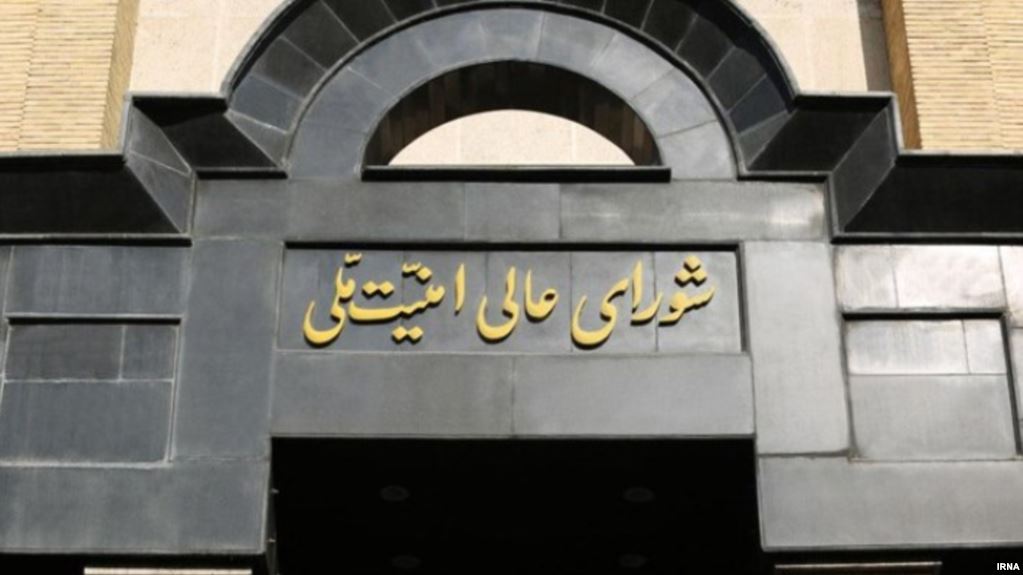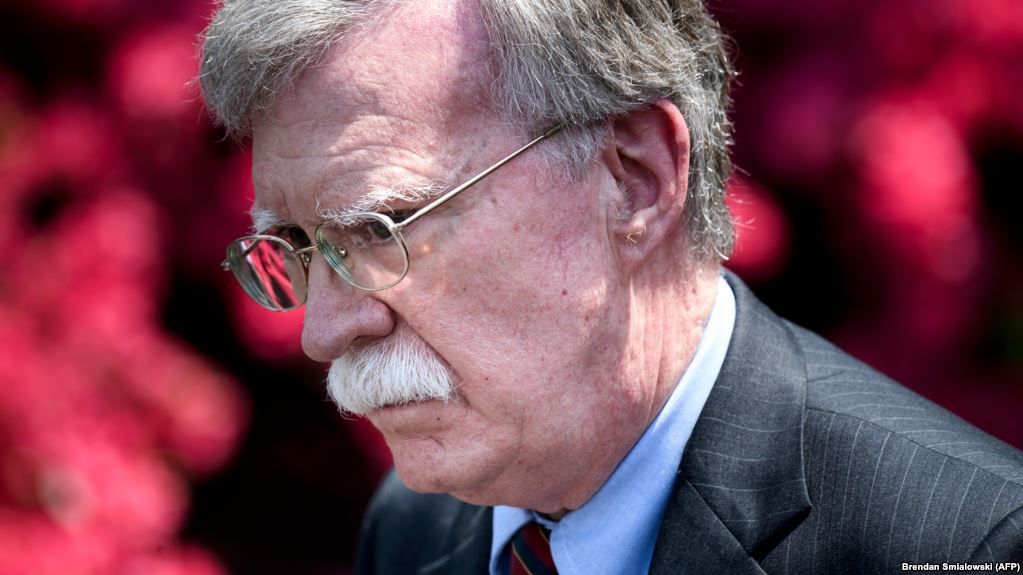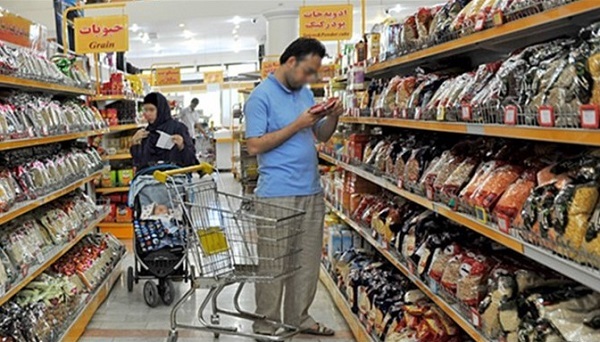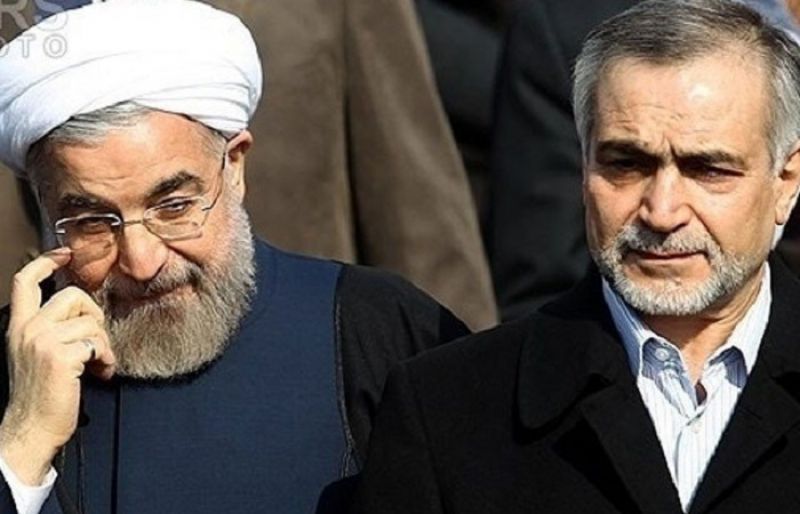
A cautious approach to the JCPOA and the US measures
The editorial of Setareh Sobh explains why Iran shouldn’t violate its obligations within the JCPOA as it might end up resulting in sanctions being imposed on Iran by the United Nations and Europe.
The United States unilaterally pulled out of the JCPOA last year and its sanctions against Iran returned. In the past couple of months, the US administration has intensified its measures against Iran including designating the IRGC as a terrorist group and not renewing waivers for buyers of Iran’s oil.
Such measures resulted in Iran taking counter-measures against America by decreasing some of its obligations within the JCPOA. This can have consequences for the country. If one of the parties to the JCPOA has violated its obligations, Iran can take the issue to the JCPOA commission and later to the UN Security Council. Otherwise, Iran will be perceived as a violator of the JCPOA, which will have consequences for the country.
It is possible that the Americans will take Iran’s measures to the UN Security Council, asking for a return to the previous situation of multilateral sanctions. This might create problems for Iran. It is not stipulated in the JCPOA that Iran can reduce its obligations. Moreover, it must be remembered that America is the only country that has violated its obligations in the JCPOA currently, while other parties to the nuclear deal are still committed to it.
Iran might go to the UN Security Council, but this won’t be useful as the US has the right to veto. The JCPOA was drafted in a way that it is not possible to put pressure on the Americans. Meanwhile, the pressures on Iran might return.
If Iran violates its obligations within the JCPOA, the United States might be able to create a global consensus that will result in sanctions against Iran from the United Nations and Europe.
Setareh Sobh – May 8
Iran must return to the negotiation table
The editorial of Jahan Sanat explains why it is important for Iran to go back to the negotiation table with the US, given the economic and political power of this country.
Even though assessing the impact of the new US sanctions on Iran’s economy isn’t that easy, what is for sure is that US political and economic power can easily increase the pressure on Iran by more sanctions.
US capability as a global power makes it possible for the US administration to impose more extensive sanctions. The sanctions can go as far as limiting the export of petrochemical products, imposing restrictions on the travel of diplomats, and pressuring other countries to cut political relations with Iran.
Under such conditions, retaliatory policies against the US administration will not only increase the cost of talks in the later stages, but it can also increase economic pressures on society. One of the important reasons to return to the negotiation table is to decrease the cost of possible negotiations in the future.
What is more, negotiations are not a sign of approval of relations with the United States; they can indicate an improvement of Iran’s relations with other countries on an international level. As such, the decision to negotiate means presenting common interests from which both sides can benefit.
Under such conditions, Iranian officials and policymakers must stop amplifying the differences, and instead focus on Iran’s common interests with other countries, including the United States. The US efforts to increase the extension of sanctions, along with the people losing trust in the government’s policies, point to increasing pressure both domestically and internationally.
Since the US administration can use its political and economic power to increase the pressure on Iran’s economy, negotiations with the United States can be a more viable option than relying on false signals from the European Union and the US Democrats.
Jahan Sanat – May 7
Natural disasters and ignorance
The editorial of Tejarat Online focuses on the necessity of public education with respect to natural disasters and how to deal with them.
Natural disasters such as floods, earthquakes, landslides, and droughts directly impact the lives of human beings. People do not have a direct role in natural disasters, yet what changes these disasters into big crises is a lack of knowledge and ignorance about how to confront them, as well as how to avoid destructive environmental activities that prepare the ground for such disasters and subsequent crises.
The recent floods in Iran demonstrated very well that if we had known how to deal with the crisis and what to do, the damages would have been minimal.
To solve this issue and given the fact that this won’t be the last natural disaster in Iran, we should raise awareness about how to confront such disasters by planning and drafting educational programs for children and teenagers, focusing on preparedness, relief and rescue, as well as practical training about how to stay safe in case of such disasters.
It is also necessary for the media – particularly the IRIB – to provide public education in this regard constantly so that people know that environmental damages will undoubtedly harm us eventually. If environmental damage continues, we will cause irreparable damage to our dear ones and to ourselves.
As such, countries like Japan that are constantly hit by such disasters have gained brilliant experience in their educational centers that can be used in course books so that children learn how to react in the event of such disasters.
Tejarat online – May 6
Who makes the decisions? Politicians or the military?
The editorial of Mardomsalari newspaper asks: Under the critical conditions in Iran when there is the talk of imminent war with the United States, who is in charge of making the decisions – politicians or the military?
In the current situation in Iran, no one seems to be in charge of making decisions, resulting in society being pushed towards an economic crisis. What is evident to the Iranian people and to society more than anything else is the deteriorating economic condition. Inflation, high prices, and a plummet in the value of Iran’s national currency have hugely affected the lives of ordinary Iranians during the last year.
Some think this is an economic war with America that started after it pulled out of the nuclear deal. In addition to that, there has been a political, diplomatic, and media war between the Islamic Republic and America. It can even be said that in Syria and Yemen, there has been a proxy war between Iran, America, and its allies Saudi Arabia and Israel.
Currently, there is the talk of a possible military war between Iran and America and its allies after the month of Ramadan. The main question is the following: is war inevitable and are there no other solutions available to resolve the crisis? Who will decide about it: politicians or the military?
The recent floods in different provinces proved that the military is more powerful and influential than the politicians.
War with American is the worst option. The solution to the issues between the Islamic Republic and America is not war, for usually in such wars, America is generally damaged very little, and the other country is the main loser. In the case of war with Iran, its infrastructures will be destroyed, and it is possible for there to be irreparable damages.
As there is no consensus with regard to the policies and decisions of the Islamic Republic, it is better to focus on less costly options – and this is the task of the politicians.
Mardomsalari – May 5

Iran reduces its obligations in the JCPOA; the US to increase sanctions

The Iranian President Hassan Rouhani officially announced suspending some of Iran’s obligations in the nuclear deal (JCPOA). Rouhani asserted that Iran will stop observing limits to its heavy water and to its uranium enrichment process for a period of 60 days, adding that if the other five countries that are parties to the JCPOA come to the negotiation table and Iran’s interests are provided, the obligations will be fulfilled as before.
At the same time, Hassan Rouhani threatened to take more steps if Europe doesn’t help Iran to benefit from the deal.
Earlier, the Iranian Foreign Minister Mohammad Javad Zarif argued that the new measures wouldn’t mean exiting the JCPOA; they only mean that Iran will not do some of its voluntary activities.
The US Secretary of State Mike Pompeo reacted to the announcement, arguing that Iran has been “intentionally vague” about reducing its obligations in the JCPOA. He added that the US will wait and see what steps Iran will take in practice.
Later Pompeo and his British counterpart Jeremy Hunt held a joint press conference, warning against the consequences of Tehran’s decision to resume suspended parts of its nuclear programs. Hunt called Tehran’s measures with regard to reducing some parts of its obligations in the JCPOA very concerning; adding that the United States and Britain have close cooperation to defuse Iran’s destabilizing efforts in the region.
After Iran’s announcement, the White House announced that the US will soon impose more sanctions against Iran. Tim Morrison, Special Assistant to the President and Senior Director for Weapons of Mass Destruction and Biodefense, said in a conference that more sanctions against Iran are to be expected “very soon”.
France had previously reacted to the consequences of Iran’s possible exit from the JCPOA. A French official had said that if Tehran takes measures that violate the nuclear deal, the Europeans have to resume sanctions against Iran.
The French Defense Minister, while acknowledging the weakening of the nuclear deal with Iran in recent months, said that “now there is nothing worse than Iran pulling out of the deal”.
Heiko Maas, the German Foreign Ministry’s Spokesperson, said with regard to Iran’s announcement that his country doesn’t approve of Tehran’s decision in this regard. He urged that while Germany seeks to preserve the JCPOA, it is concerned about Iran’s interference in Syria and Yemen, as well as Iran’s missile program.
Radio Farda
The US sent an aircraft carrier and bombers to warn Iran

The US National Security Advisor John Bolton said that America will increase its military and offensive capability in the Middle East to send a clear message to Tehran. According to Bolton, the United States is not seeking war with Iran, but any Iranian military measures will be countered by “unrelenting force”.
The Spokesperson for Iran’s Supreme National Security Council Keyvan Khosravi has called Bolton’s statement “clumsy” and that it serves Washington’s “psychological warfare”.
The United States has deployed the USS Abraham Lincoln carrier strike group and a bomber task force to the Middle East to warn Iran in the aftermath of threats by Iranian forces.
The US acting Secretary of Defense Patrick Shanahan, in a tweet, wrote deploying an aircraft carrier to the Gulf is following a “credible threat” by Iran’s military forces, calling on Tehran to cease provocative measures. He added, “we will hold the Iranian regime accountable for any attack on US forces or our interests.”
The CNN said in an exclusive report from the Pentagon that intelligence showed that Iran was probably moving short-range ballistic missiles aboard boats in the Gulf and this was one of the reasons the US decided to move an aircraft carrier and B-52 bombers into the region, according to several US officials with direct knowledge of the situation.
Earlier the US Secretary of State Mike Pompeo stated: “we were witnessing provocations by Iran, and at the same time, we hold Iranians responsible for any attacks against the US interests.”
Pompeo added that the US measures aim at ceasing Iran’s activities such as backing terrorist organizations that launch rockets at Israel or the building of missile systems in Yemen to help the Houthi rebels.
US officials have pointed to serious and credible threats with unprecedented details, which include Iran’s plans for a possible attack by its proxies against US targets in the Strait of Bab el Mandeb, as well as Iranian drone attacks against US targets in the Gulf.
According to the Wall Street Journal, US officials have also received intelligence as to Iran’s possible attack against US forces in Kuwait.
Radio Farda
The worst economic recession in Iran

One year after the US administration pulled out of the nuclear deal with Iran, the country’s economy has more than ever deteriorated. According to experts, Iran’s economic condition will decline more and more.
According to the International Monetary Fund (IMF), Iran’s GDP will decrease by 6% this year. It also predicts that the current economic crisis in Iran will be worse than the economic recession in 2012-2013, which was due to the international sanctions against Tehran’s nuclear and missile programs.
Prices hikes can be seen in foods products more than any other item. The price of food already show a 70% rise and there will be another 20% increase by the mid-summer. Some items — particularly red meat — have become scarce. According to the hardliner Fars News Agency, the price of sugar has had a 300% increase during the past three months. It adds that after the price of Forex, gold, gold coins, housing, automobiles, paper, protein products, fruits, and clothing skyrocketed, now other food items are also experiencing a price hike.
On the eve of the month of Ramadan, Iranian officials promised to tackle price hikes in essential food items, emphasizing that people shouldn’t worry about food scarcity. Despite such remarks, the prices of certain food items have increased again, and spaghetti and canned tuna have become scarce. Recently the price of different spaghetti and canned tuna had a 60 to 70 percent increase.
Last year, on May 8, 2018, US President Donald Trump unilaterally pulled out of the nuclear deal with Iran and resumed previous sanctions against the Islamic Republic. On May 21, 2018, the US Secretary of State Mike Pompeo announced 12 conditions for ending the sanctions. The US administration particularly called on Iran to halt its nuclear program and its production of ballistic missiles, as well as to end its destabilizing measures in the Middle East. Pompeo had warned that the Islamic Republic would otherwise face the most severe penalties in history.
On April 8, the US President Trump designated the IRGC as a terrorist group, thus subjecting any economic activities with IRGC-affiliated companies to severe penalties.
RFI
Radio Zamaneh
The Iranian President’s brother sentenced to imprisonment for corruption

President Hassan Rouhani’s brother, Hossein Fereydoun, has been sentenced to jail on the charge of financial corruption. Hamid Reza Hosseini, a judicial authority, announced the jail sentence for Rouhani’s brother, adding that since the sentence was not finalized, he would not reveal any details about it.
This judicial authority added Hossein Fereydoun had been “acquitted of some charges and sentenced to jail for another part of his charges.”
Hossein Fereydoun was arrested and imprisoned in 2017, and released on a 50-billion-toman bail later. He was one of Rouhani’s closest advisors, known as the President’s “eyes and ears” during the negotiations over Iran’s nuclear program.
Tabnak
